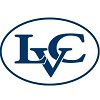Lebanon Valley College is a private liberal arts college located in Annaville, Pennsylvania, USA. The following is a detailed introduction to the college:
School History
Founded in 1866, classes began on May 7 of the same year. It was originally developed by the American Church and is now affiliated with the United Methodist Church.
School Overview
Campus size: Small, it is a liberal arts college with about 1,600 students.
Ranking: In the 2024 U.S. News & World Report's Northern Regional University Rankings, the school ranked 15th.
Campus Environment: The campus has a high safety factor and is rated as one of the safest college campuses in the United States. It is also rated as one of the best college campuses in the United States.
Student-faculty ratio: Approximately 1:13, the low teacher-student ratio enables teachers to provide students with more personalized education and guidance.
Professional Settings
Undergraduate majors: covering general education, American studies, art education, health professions, biochemistry and molecular biology, biology, accounting, business, economics, medical management, criminal justice, digital communications, elementary education, secondary education, English, French, German, Spanish, forestry, special education, civic education, history, communications, political science, actuarial science, computer science, medical technology, military science, mathematics, music, music business, music education, music recording technology, physical therapy, engineering, psychobiology, psychology, religion and philosophy, sociology, study abroad and many other fields.
Graduate majors: open MBA, Master of Music Education, Master of Science Education and Doctor of Physical Therapy.
Teaching Features
Outstanding liberal arts education: The liberal arts education major of the college ranks among the best in similar institutions. It focuses on cultivating students' comprehensive qualities such as critical thinking, communication skills, creativity and global vision, and provides students with a broad knowledge base of humanities and social sciences, so that they can better understand and deal with various problems in a diversified society.
Combination of practice and theory: Emphasis on practical teaching, through internships, experiments, project cooperation and other methods, let students apply the theoretical knowledge they have learned to practice and improve their ability to solve practical problems. For example, students majoring in business have the opportunity to intern in enterprises and participate in actual business projects; students majoring in science and engineering can conduct scientific research practice in the laboratory and accumulate experimental experience.
Small class teaching mode: Small classes are used, with a small number of students in each class. Teachers can pay attention to the learning progress of each student, provide students with timely guidance and feedback, promote students' active participation and interaction, and improve learning effects.
Campus life
Student organizations and activities: The school has a rich variety of student organizations and community activities, covering academic, artistic, sports, cultural and other aspects, such as music clubs, drama clubs, sports clubs, academic associations, etc. Students can participate in corresponding organizations and activities according to their interests and hobbies, expand their network, develop their own expertise, and enrich their campus life experience.
Sports and Athletics: More than one-third of undergraduates participate in the school's 26 school team sports, and have achieved good results in the classroom, on the field and in the professional field. The school has a strong sports culture atmosphere. Sports and competitive activities not only enhance students' physical fitness, cultivate teamwork spirit and competitive consciousness, but also win honors for the school.
Campus Culture: Advocate a caring and friendly cultural atmosphere, which runs through all aspects of campus life and online learning, and extends to outside the school. The school focuses on cultivating students' sense of social responsibility and encourages students to participate in community service and volunteer activities to contribute to society.
Admission Requirements
Undergraduate: IELTS requires 6.5 points.
Graduate: Different majors have different admission requirements. Generally, a bachelor's degree in a related major is required. Some majors may also require submission of standardized test scores such as GRE and GMAT, as well as application materials such as recommendation letters and personal statements.
-

Harvard University
-

Massachusetts Institute of Technology
-

South University
-

University of West Georgia
-

Stanford University
-

Northwest Nazarene University
-

Hawaii Pacific University
-

Shorter University
-

Nova Southeastern University
-

Saint Leo University
-

Mesoamerican University
-

Istmo University
-

Mariano Galvez University of Guatemala
-

Regional University of Guatemala
-

Galileo University
-

Francisco Marroquín University
-

Rafael Landívar University
-

University of the Valley of Guatemala
-

University of San Carlos of Guatemala
-

Technological Institute of Tlaxcala Plateau
-

Golfo University
-

Technological University of South Sonora
-

Technological University of Huejotzingo
-

Tizimín Institute of Technology
-

Chilpancingo Institute of Technology

